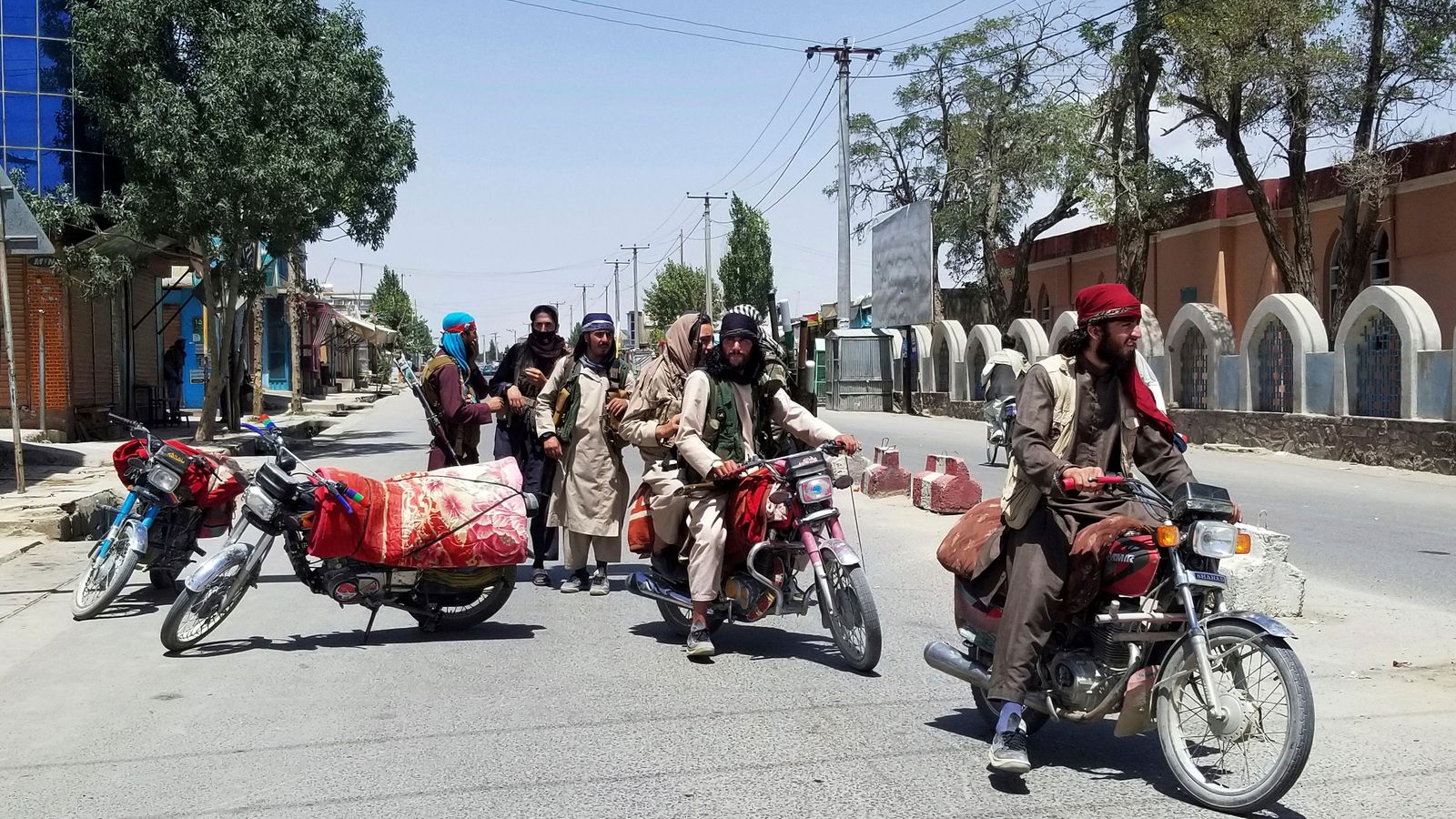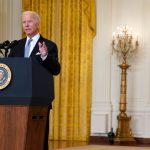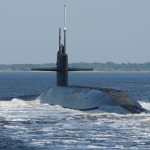The Taliban advance has been far swifter and more decisive than expected.
It has swept through the countryside and one provincial capital after another.
The Taliban’s success is down to effective strategy, clever tactics, including propaganda and psyops, the weakness of the Afghan government, and a poorly executed exit strategy by the Americans.
Strategy
The Taliban has had years to prepare for this and appear to have made use of the time planning wisely. Its strategy appears to have been to target low hanging fruit and to shore up their weak flank first.
The fruit?
“The Afghan government has insisted in recent years on the Afghan troops holding isolated checkpoints in rural areas,” Ben Barry of the International Institute for Strategic Studies (IISS) told Sky News, adding: “Which are very difficult to defend and the Taliban has very easily picked off.”
The weak flank?
The north, where the Taliban’s nemesis the Northern Alliance in 2001 had its stronghold. The Taliban has secured gains in places like Kunduz Shebhergen and Sar e Pul quicker than expected, making a revival of the alliance a distant prospect.
It can now move on to bigger prizes. Its birthplace in the city of Kandahar and possibly the capital itself, Kabul.
Clever tactics
The Taliban rewards commanders who do well in battle. It is a seasoned fighting force feared by its enemies.
It has exploited this fear with propaganda, spreading rumours vastly inflating the size of fighting forces poised to take towns and villages. And it has been extremely effective in making the Afghan military feel isolated and demoralised.
Early on for instance, it spread rumours it had done a secret deal with the Americans without Afghan government support. It has gained advantage in the battle of the narrative, its propaganda claiming that victory is inevitable, wrote Ben Barry earlier this month.
Afghan government weakness
The Afghan military may have been given billions of dollars in weapons and training by the Americans, but the country is vast and the military has been spread thin.
In some towns, the government or military’s presence has comprised just a couple of buildings or checkpoints, making it extremely vulnerable.
And the central government has been centralising power, alienating some in the provinces rather than consolidating support. It is supported by many who fear and despise the Taliban, but also tainted by association with the foreign powers and some by corruption and nepotism.
US exit strategy
The Americans made it clear they were withdrawing even before finalising negotiations with the Taliban, weakening their own hand and giving the Taliban plenty of time to prepare.
Critics say the Americans’ withdrawal has been over hasty and at the very least should have included a commitment to base US airpower in Afghanistan for some time to come.
The military vacuum left by the Americans has been crippling for the Afghan government. Whatever training and weapons it’s been given by the Americans, it’s still always relied heavily on American support, especially airpower.
The Afghan military has been feeling the pressure of an increasingly assertive Taliban for some months but “particularly now they have less access to US airpower and US advisers are no longer able to deploy on the ground and call in airstrikes”, says Ben Barry.
Nick Reynolds, from the Royal United Services Institute, puts it this way: “The Biden administration’s surprise announcement to pull out and the rapid withdrawal of US forces has unfortunately exacerbated the situation.
“While Afghan government weakness has been chronic and long-standing, the speed of the withdrawal left little opportunity for the government to adjust to their new situation, while the Taliban, having slowly been making gains across the country, seem to have found themselves in the ideal position to capitalise.”
Please use Chrome browser for a more accessible video player
It’s Afghanistan
It’s a huge rugged country with terrain and topography that favours insurgents using asymmetric warfare as the Russians learned last century, and the British before them.
The writ of central government is weak in the provinces and the Russian occupation left a chaotic, uncontrollable hinterland where warlords and jihadi factions could prosper.
The legacy of the American intervention is likely to be a return to something similar, or the return of the ultra-conservative Islamist theocracy that followed.
But it wasn’t inevitable. Given enough international support early on and without the devastating distraction of Iraq, many observers believe the Afghan government had a chance of prevailing on its own.






















